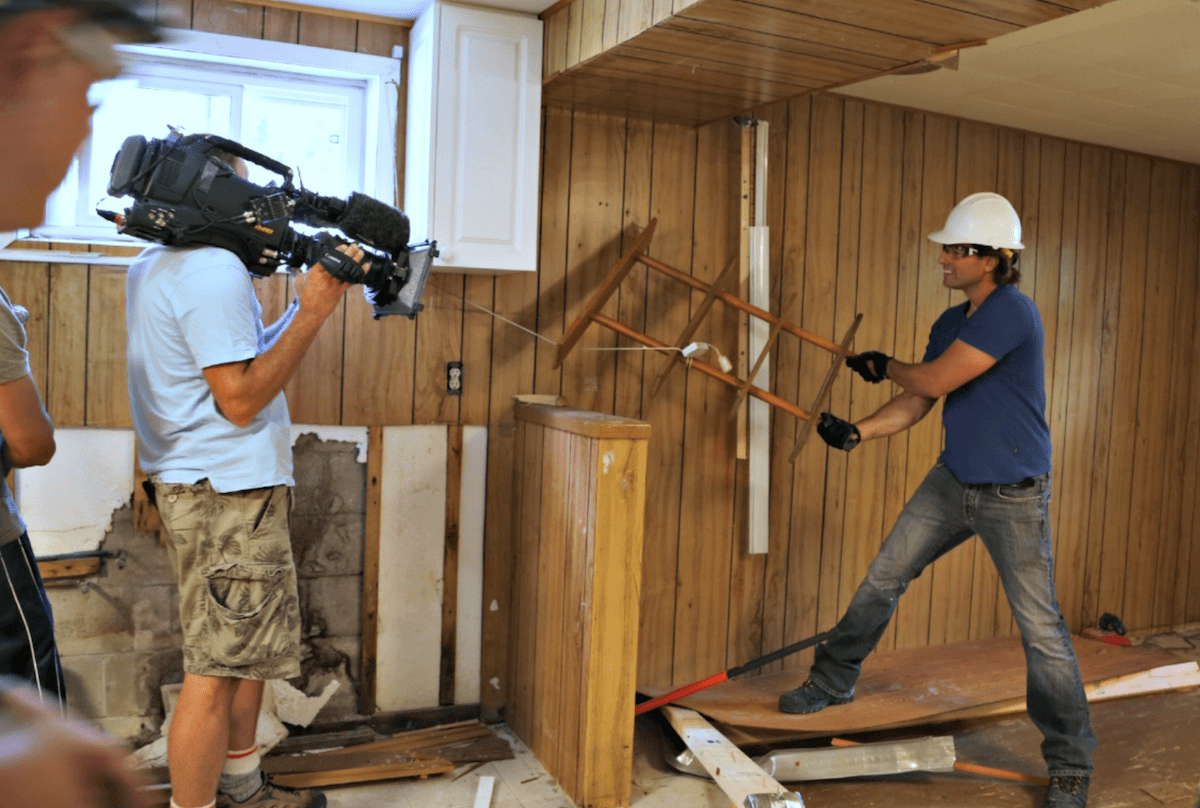HGTV Host Scott McGillivray Explains How to Save Money When You Buy a House

Buying a house is likely to be one of the most expensive purchases you’ll ever make. With high home prices and fierce competition, it pays — literally — to get smarter about buying.
My own foray into real estate investment began when I was in college. Now, more than 15 years later, I have hundreds of investment properties across the United States and Canada, and house hundreds of tenants.
Along the way, I became a contractor and found myself producing and hosting HGTV’s “Income Property.” This opportunity allowed me to do something I’m really passionate about: helping people make smart investment decisions that deliver financial rewards.
That’s why I’m sharing five ways to become a savvier home buyer to help you save money before you get to the closing table.
1. Know the Comps
Before you start looking at a home, make sure you’ve done your research. Not only on the neighborhood and schools, but also comparable sales (comps) of recently sold homes.
There is so much information available online, like neighborhood details, home listings and home prices. That’s why it’s easy to find homes of similar size, condition and location that have recently sold in the area.
The best part? You can find a lot of this information for free online at sites like Realtor.com and Zillow.com.
A 2015 study found that compared to appraiser opinions, homeowners often overestimate the cost of their home by 2%. That’s why looking at comps can help you get a sense of whether a home is a good value, and ultimately help you make a smarter offer.
2. Talk to a Neighbor

So you’ve done your research and you’re starting to attend open houses and look at homes… now what?
One of the many things buyers do that could cost them money is they fail to speak with neighbors and gain useful insights.
A neighbor might be the most valuable, and free, asset you have before you put in an offer. When a home is on the market, sellers can mask potential flaws to help the home sell quickly… but a neighbor can give you the inside scoop.
The questions you ask can help determine if you’re compatible with what the neighborhood has to offer. A neighbor may also share if the basement is prone to flooding, or has a history of bug or foundation issues. This information is crucial in helping you decide whether this is the house for you, what to offer and how much you’re willing to take on.
It may feel awkward, but don’t be afraid to approach a neighbor who is outside, or knock on the door of the next door neighbor — the worst they can say is no!
3. Don’t Buy the Perfect House

I don’t have to remind you that home prices are skyrocketing and competition is higher than ever. One of the mistakes I see buyers make is they become so fixated on finding the perfect home, they miss out on a GREAT home that might save them some money.
I’m all about curb appeal, but don’t be immediately turned off by ugly carpets, bad landscaping or dated wallpaper — these are all inexpensive fixes that can turn a house into your dream home.
Buying a property that needs some work is a great way to lower or negotiate your purchase price, and you may find there’s less competition to get the home. Just make sure any work that needs to be done won’t break the bank. And if you’re doing any relevant energy-saving home improvements, look for opportunities to get tax credits.
When I started in real estate, I did the majority of the cosmetic and repair work on the homes I bought myself, which saved me thousands of dollars. In fact, one home I purchased was close to being condemned. But I bought it anyway, completely gutted it and was able to rent it out to tenants.
It was a lot of hours and a lot of work, but in the end it was incredibly rewarding — I bought the house for $60K and sold it for $250K with about $75K in rehab costs. Not only did I get to see the success of my rehab efforts, it also helped me gauge a price and timeframe when I hired someone to help in the future.
4. Don’t Forgo the Inspection

In this competitive marketplace, it can be attractive to a seller to have an offer with no conditions or scrimp on some things to save a few dollars. But if there’s one piece of advice I can give, it’s this: NEVER skip the inspection!
While an average inspection can run anywhere from $300-$500, it can be invaluable in the home-buying process. An inspection decreases your chances of moving into a home that has expensive or unexpected problems that could cost you serious dollars after closing.
Some sellers may try to mask issues, and others may not be aware of a problem. An honest, informed opinion from an inspector will help disclose anything that’s wrong with a house.
And be sure to take the report seriously — I’ve seen many homebuyers who are so attached to a house they don’t take the inspection seriously. If the results aren’t what you were expecting, ask the seller to fix the problems, request money to do the repairs yourself or move on — there are plenty of other homes on the market.
5. Look for Ways to Get Money Back

Back in the day, home prices used to be much lower and people didn’t have access to all the online resources we have today. So, there was much more reliance on agents to help people find a home.
Today, buyers are already doing a lot of the leg work on their own, from researching neighborhoods to looking online to find the home they’ll eventually buy.
Consumers, particularly millennials, are seeking out low-to-no commission brokerage services to keep some money in their pockets. Some of these brokerages provide sellers the opportunity to save on the traditional 3% commissions they would typically pay their agent, and buyers can get money back on the purchase of their home.
I used this model to sell my own home recently, and saved around $30K! These services, like Owners.com, may offer buyers the opportunity to get a monetary rebate at closing — this could be thousands of dollars to put toward new furniture or renovations, or even reduce mortgage payments.
So make sure you shop agents and real estate companies, and don’t be afraid to embrace the new online way of doing real estate — it may just put a few extra dollars in your wallet.
Scott McGillivray is a real estate expert, investor and award-winning television host (“Income Property” and the brand new “Buyers Bootcamp” and “Moving The McGillivrays”). Scott has teamed up with Owners.com to offer money-saving strategies for home buyers and sellers. Learn more at http://scottmcgillivray.com/.












